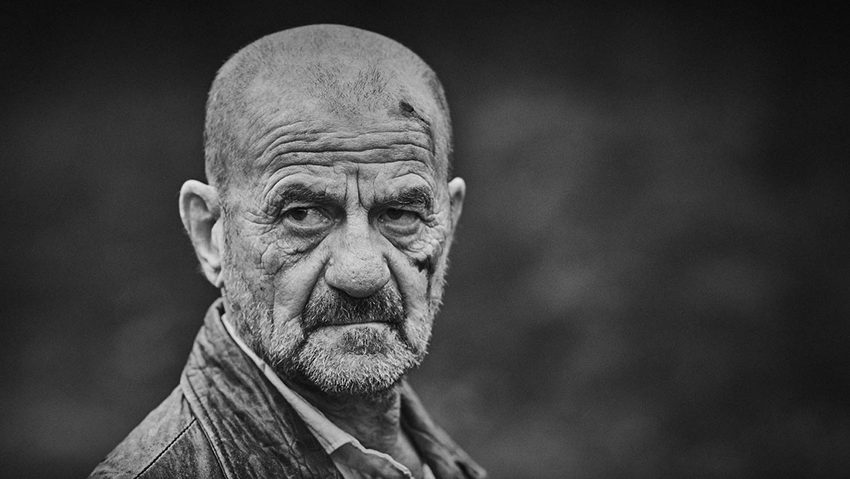
László Illés is from Miskolc, Hungary. He is an indie filmmaker. He works as 1st a assistant director on Hungarian features, international films, commercials and music videos.
Illés indie personality carries through to his films, which are primarily financed through crowdfunding and private investors. He runs a production company, Intergalactic Productions, which enables him pursue his passion and make top quality, critically acclaimed indie films for the international market. ‘The Basement’ is his first feature. “The Shepherd” is his second feature film.
The Shepherd is a historical drama, which takes place in Europe during WW2, in Nazis occupied territory. The main character is an old shepherd, who lives alone on a ranch. After the death of his daughter at the hand of German soldiers, he chooses, in his grief, to save as many Jewish as he can. Throughout the film, the Shepherd faces mounting obstacles, the most difficult culminating in the life of a Jewish family, a wounded girl, or himself against the German soldiers.
Related Story: ‘The Shepherd’, Hungarian film by László Illés goes on the Festival Circuit
The director concedes that we have already seen a lot of physical horrors in war movies, but this movie is different. In “The Shepherd,” Illés wanted to show the psychological trials that people went through in a way that is as raw and as authentic as possible. The Shepherd is a dark, intense movie, as dark and intense as WW2. However, Illés wants everybody to understand that no matter how dark it is, you can always find the light, which is very relevant to present day.
indieactivity : Introduce your film briefly?
László Illés : The Shepherd is a historical drama takes place in Hungary, 1944 – The main character is an old shepherd, who lives alone on a ranch. After his daughter got killed by Nazis, he decided in his grief to save as many Jewish lives as possible.
We have already seen a lot of physical horrors in war movies, but this movie will be different. In The Shepherd, I want to show the psychological trials that people went through in a way that is as raw and authentic as possible. The camera will be moving constantly with our protagonists to show their feelings and reactions to events in a more dramatic way. The audience will breathe and feel with the main characters. They will experience how it feels like to run for your life, while Nazis are behind you, and your fellows are dying next to you. They will also get a grasp of what it is like to see your lover being raped by soldiers, or when you and your family is being executed by soldiers.
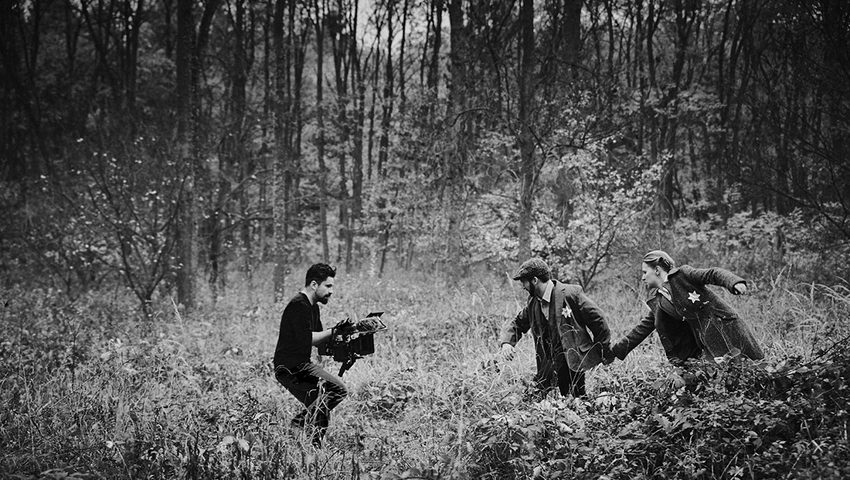
The Shepherd is a very dark movie, as dark and stunning as WWII was. However, I want everybody to understand that no matter how dark it is, you can always find the light that gives a new meaning to everything. I would like to highlight the fact that during the Second World War there were many unsung heroes that we don’t even know about. The heroic acts of those “simple” and forgotten people have also significantly contributed to the allied victory in World War II and the end of the Nazi terror.
There are many heroes in the public mind that saved the lives of thousands of Jews during the Holocaust. However very little is said about those people who lived a simple life and were not forced to take part of WWII, but whose empathy and selflessness did not allow staying passive in the midst of Nazi terror. They made the decision to help Jewish people stay alive, even if this meant risking everything they had, including their own lives.
This film is dedicated to these unsung heroes and their selfless sacrifices to mankind.
Related Story: Executive Producer Franklin Eugene; ‘How to Fashion, The Shepherd, a WW2 Film in Nazi Occupied Hungary’
indieactivity : Give a background of your personal experience with the story, writing, production and marketing?
László Illés : The Second World War is the closest and most epic struggle in history, where the whole world united for a bigger cause. This was a situation in which millions of people were in a vulnerable position, many because they had to leave their homes to fight on the front lines, many simply because they were born as Jews, women, elderly, or children and were hiding in their homes awaiting their fate.
Consequently, I have always found the fate of individuals and micro-dramas more interesting than the often “impersonal” epic struggles. That is why I have decided to show the impact of the war on everyone’s life from the perspective of a solitary little man. Through the story of a simple old man, I want to show those personal dramas and selfless acts, which are as important as the epic events of the war. I think the true character of someone is revealed when faced with adversity.
I believe that it is easier to communicate important messages if you are an independent filmmaker. However, the flip side is that your hands are tied due to the limited budget. Of course I want to direct blockbusters for big studios in the near future. I have been making independent movies passionately for more than a decade, so I’ve learned to able to make high-quality movies with a small budget (our latest feature film, The Basement was released officially in several countries).
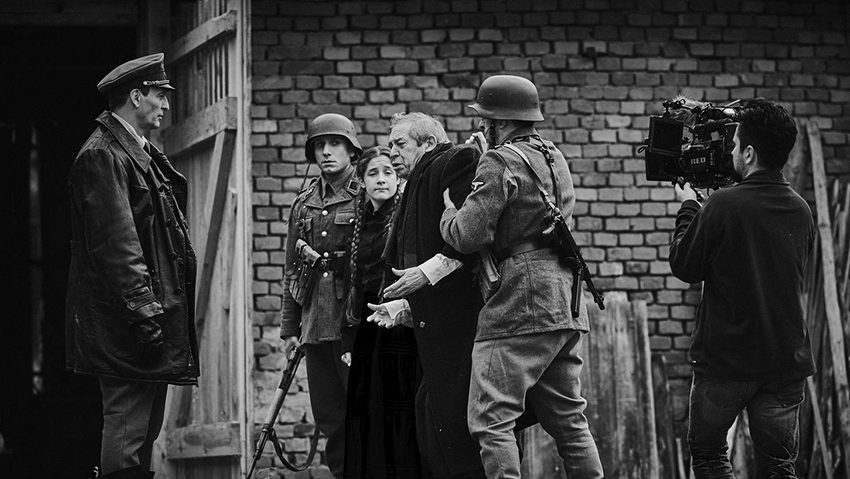
Writing the script was a great challenge, I knew that we will have limited amount of budget and shooting days (nine in total), so I tried to make a story that fits to those circumstances. I used only a several characters, and only a very few locations: a forest and the house of The Shepherd that is in an isolated area. I always loved directors who did not fear using very long takes. It’s a really risky and complex visual storytelling method, which requires deep concentration and experience from all the cast and crew members.
If you know all the aspects of the take you want to capture, and you really trust in your colleagues and in yourself as a director then you can save a lot of time. But if any problem occurs, you can risk the success of the whole shoot, and it can lead to a disaster. I was very lucky, because all the cast and crew members were really experienced filmmakers, so I was able to shoot two or three takes in a day (it’s about 10 to 15 minutes of the final runtime).
However the shooting was very rushed, but because of the great teamwork we were able to finish it in time. After that we also had a very short time to finish post-production because the deadlines of the big festivals were very close, but we completed the movie and I am totally satisfied with the result.
Now we are focusing on festivals, and I’m really looking forward to having many selections.
Related Story: Case Study: The Making of ‘The Shepherd’ by Executive Producer, Taylor Ré Lynn
indieactivity : Did you start writing with a cast?
László Illés : When I’m writing a script there are always possible cast members in my head. This really helps me with developing characters and to visualize the story.
indieactivity : How long did you take to complete the script? (Do you have a writing process?)
László Illés : Yes, I take a lot of time in brainstorming in my head going through all the details of the story. This will ensure I have the best storyline, the best twist and turns, and to find all the small aspects of characters and scenes that give real depth to the script. Usually it takes months. I never start writing before having everything in my mind, because I think it’s only a waste of time, and it’s really confusing to erase dozens of pages and start again from the very beginning just because you find out something new, that completely changes the story.
So when it’s time for writing, it takes about two weeks to have a first draft. When I have the draft, I put it away for a week or two and clear my thoughts completely, and I’m focusing on everything else but the script. Thus, when I read it again “as an outsider”, and I can make the final touches. I never have more than two drafts of a script.
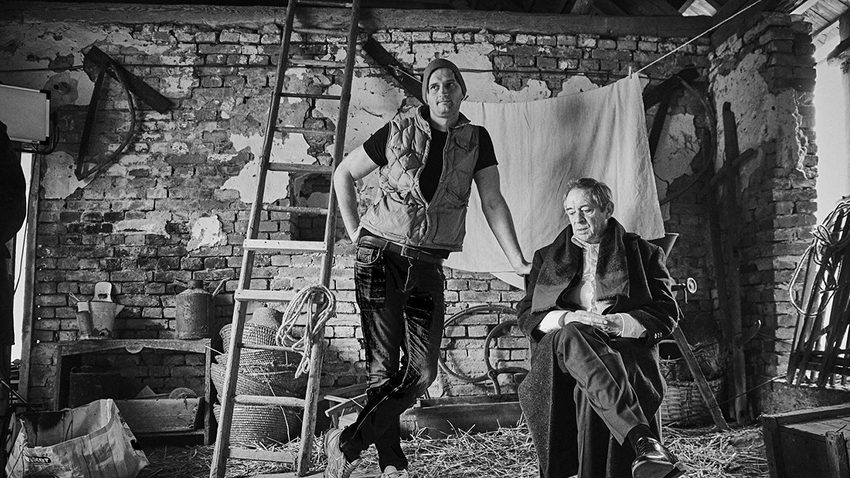
indieactivity : How did you develop ‘your film’?
László Illés : As previously mentioned, I am developing the film (script) in my head, as well as researching the actual era, visiting museums, reading book, watching similar movies, etc. I have a lot of stories in my mind (some of them are there for more than a decade), but I never write scripts just to do something. I can’t really explain it, but sometimes a feeling comes from nowhere that the time has come to make one of them.
indieactivity : How was it financed?
László Illés : The movie was financed through crowdfunding (Indiegogo) and using my own money. We had three campaigns. One campaign was conducted before filming, one for post-production, and one for festival funds.
indieactivity : Is there anything about the independent filmmaking business you still struggle with?
László Illés : Well, as an independent filmmaker I always struggle with money. In my country (Hungary) it’s almost impossible to find private investors or production companies, so I must use the help of foreign people. That’s why I choose crowdfunding. I can’t describe how good it feels that people who don’t know me are helping me to create my dreams. Because of the very low budget, I always have to make compromises because my possibilities are limited. So you must find creative ways to be able to make your movie as good as it can be, with a small crew, and few shooting days.
I really hope that for my next feature I’ll be able to raise more funds, so I’ll have more artistic freedom and time.
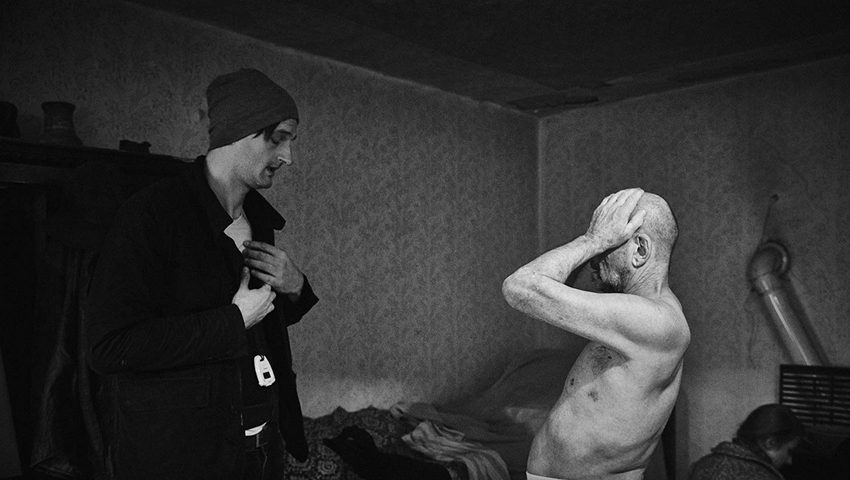
indieactivity : How long was your pre-production?
László Illés : It was about one and a half month. I’ve already knew what and where and with whom I want to shoot, so all we should do was to organise everything.
indieactivity : What was your rehearsal process and period?
László Illés : Honestly, I don’t really like to have a long rehearsal period. It’s important to talk with all of the actors face to face about the characters and the way I want to see their performances, I also use to rehearse the most important scenes, but that’s all. The shooting atmosphere is very different and you should always have the ability to throw away your notes. There are always new ideas that will elevate the quality of a scene.
indieactivity : You shot the film in days. How long were your days?
László Illés : We shot the movie in 9 days. Because all the scenes are in daylight (it’s a one day’s story) we have only a limited time to complete the days. We worked for 12 hours, but we have only about 9 hours with sun, so we arrived very early in the morning, and we start preparing and rehearsing in dark, so when the sun came up we immediately start shooting.
indieactivity : Did the tight shooting schedule make it harder or easier? How did it affect performances?
László Illés : The actors were very experienced professional actors, so the tight shooting schedule didn’t harm their performances. It’s really stressful to shoot in a rush but you can learn a lot from it. If you have a very good cast and crew, and as a director you know what you want to do, you can succeed.
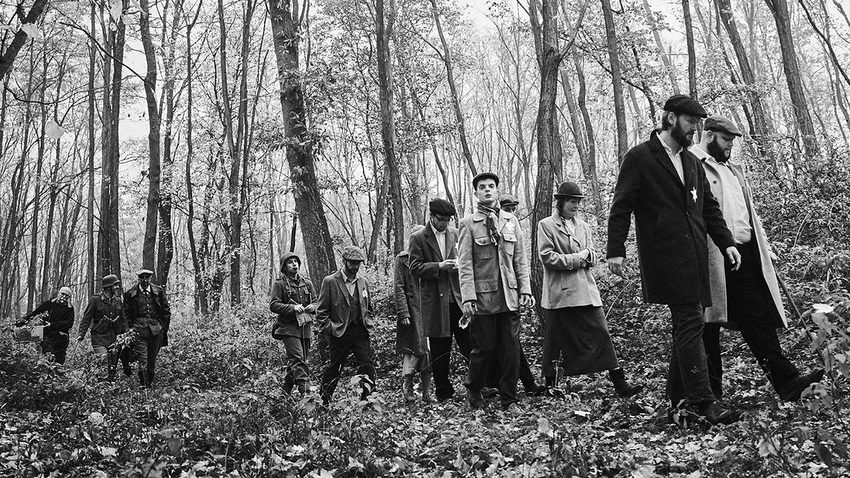
indieactivity : How much did you go over budget? How did you manage it?
László Illés : About 15% over budget. Normally it’d be a lot, but the final budget was 35,000 USD. Because the post-production crowdfunding budget was a great success, we were able to manage the problem.
indieactivity : How important is marketing? Do you think a project can make any dent without it these days?
László Illés : I think with great marketing, you can sell a bad movie to the audience (however they’ll be dissatisfied), but you can’t sell the best movie without marketing. So no matter what you made, you should spend a lot of money and time to find the best ways to promote your movie.
indieactivity : What was the experience like of working with such a small shooting crew (?)?
László Illés : I made my previous feature film, The Basement with a small crew as well, so I already knew how it would be. It’s a very different filmmaking method. I think everybody should start with a short film if you can only hire a small crew, because you have to learn that method. There are a lot of things you should be aware of or you could fail badly.
indieactivity : The film looks stunning. How did you get such a good look when shooting so fast?
László Illés : I have been working in the film industry since 13 years of age, and I’ve directed a lot of short films, music videos, commercials with bigger crew and budget, and I’m also working as a first and second assistant director in big-budget feature films and international commercials. I’m always trying to learn from all the shootings and learn the secrets of filmmaking. I believe that no matter what kind of camera you have, if you know how to achieve a film look, you can do miracles out of a low budget.
indieactivity : What were the advantages and disadvantages in the way you worked?
László Illés : Well the disadvantages are that you are always rushed; you don’t have enough time to shoot or to think. You have to make a lot of compromises because of the budget and the small crew and so on… It can be a nightmare if you are not passionate enough in filmmaking.
There are two advantages:
- You make a movie, and for me that’s the best thing in life.
- You can learn a lot, so you will be more prepared and experienced when the time comes to shoot a big-budget movie with hundreds of crew members.
indieactivity : What else have you got in the works?
László Illés : I’m working on the script of a historical adventure-horror movie with Roman Legionnaires. I’ll shoot a concept trailer in a month, and then I’ll start looking for investors. I really want to shoot that movie as soon as possible. I’m also trying to find a studio to make my mystery, sci-fi thriller TV mini-series called Excavation. It’s about an investigation in an abandoned ghost town with terrible secrets.
Tell us what you think of the interview with László Illés What do you think of it? What ideas did you get? Do you have any suggestions? Or did it help you? Lets have your comments below and/or on Facebook, Twitter, or Instagram! Or join me on Twitter @oladapobamidele
Follow László Illés on Social Media
Website
IMDb
Facebook
YouTube
In Camera by Naqqash Khlalid Launch on VOD April 29
Naqqash Khlalid’s Directs Nabhan Rizwan. In Camera stars an EE BAFTA Rising Star Award Nominee.
2025 Philip K. Dick Sci-Fi Film Festival Award Winners Announced
Vanessa Ly’s Memories of the Future Awarded Best PKD Feature
Dreaming of You by Jack McCafferty Debuts VOD & DVD for April Release
Freestyle Acquires “Dreaming of You” for April 15th Release
Hello Stranger by Paul Raschid set for London Games Festival & BIFFF
The film Is set for an April 10th Premiere at The Genesis Cinema in London (LGF) and BIFFF
Daydreamers Official Trailer by Timothy Linh Bui: Released by Dark Star Pictures
Daydreamers Vietnamese Vampire Thriller – May 2nd release
Afternooner by The Harrow Brothers: Funniest Movie of the Decade on VOD & DVD April
Freestyle Acquires “Afternooner” for April Release









